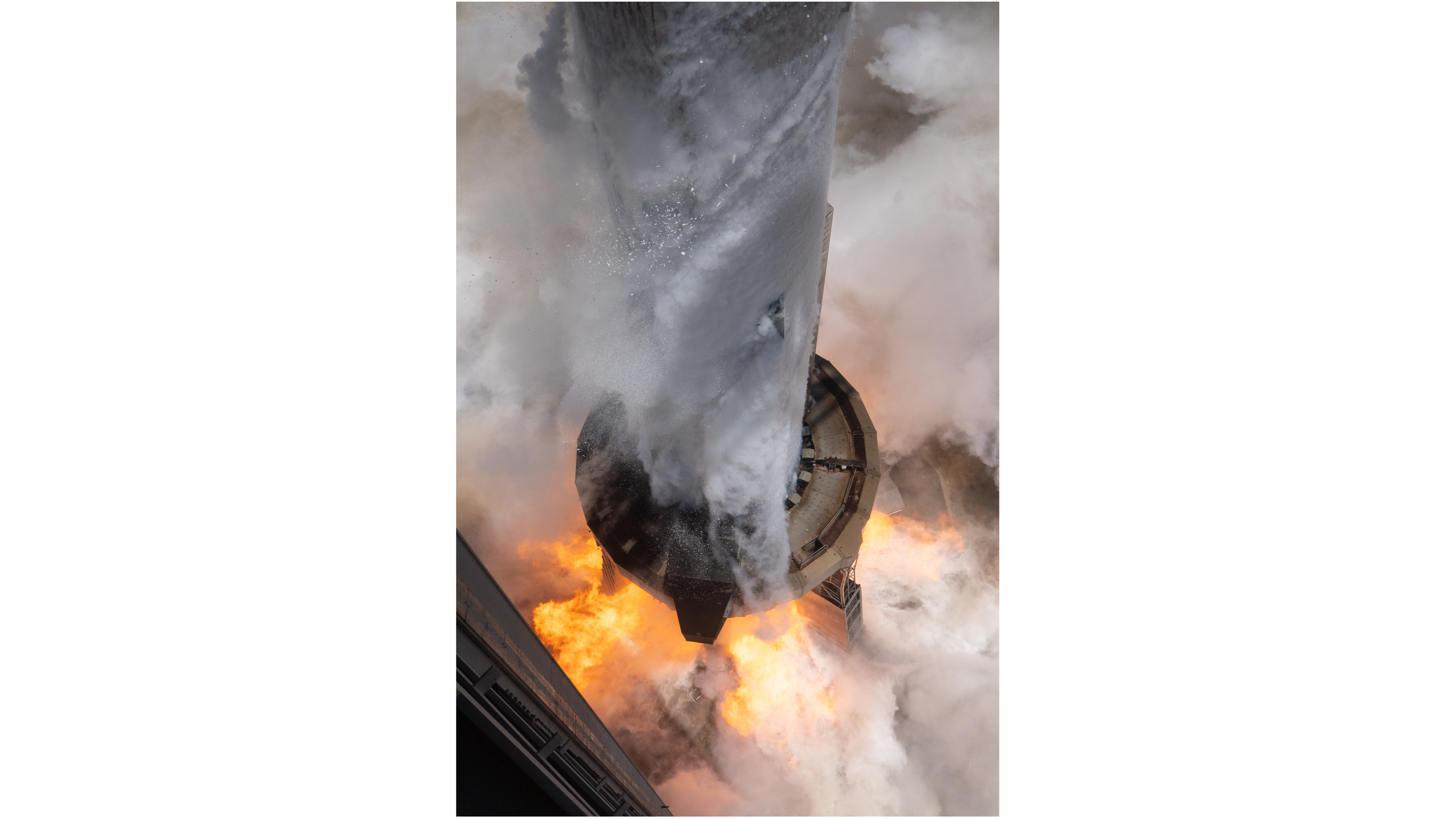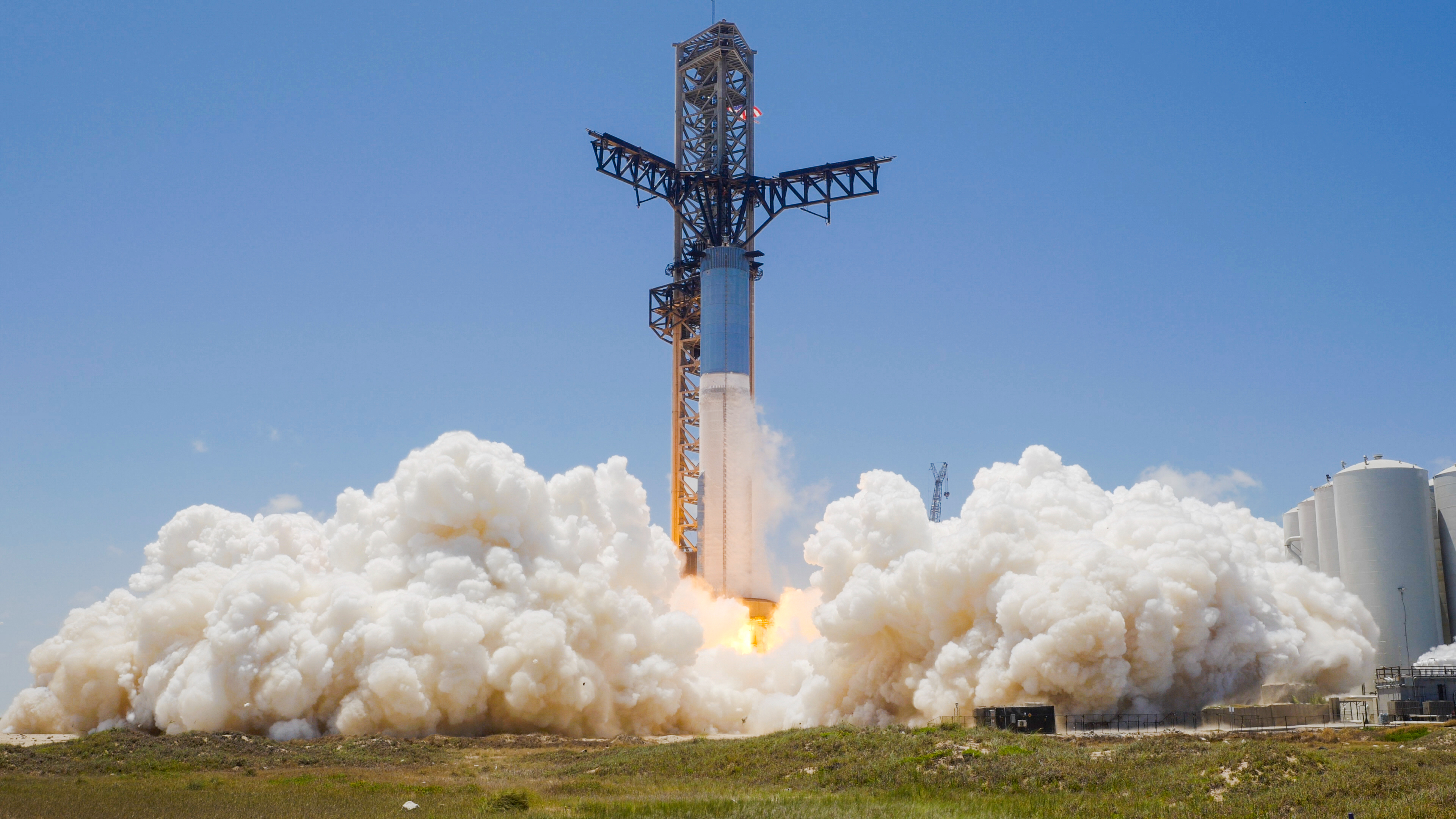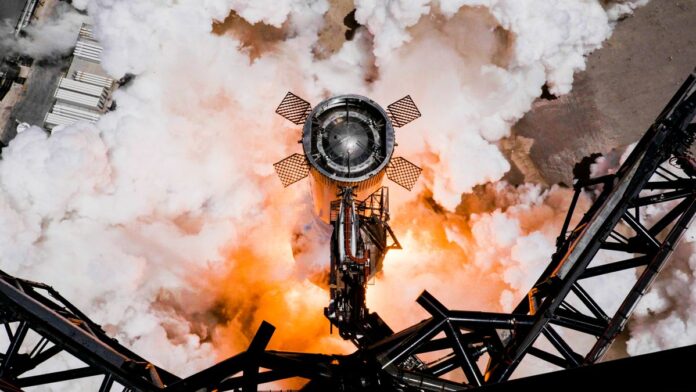The immense power of SpaceX’s Starship Super Heavy booster is on glorious display in newly released photos of a recent engine test.
That test occurred on Sunday (Aug. 6), when SpaceX briefly ignited the 33 Raptor engines of a Super Heavy prototype known as Booster 9 at the company’s Starbase site in South Texas.
Four of the Raptors shut down prematurely, SpaceX said during a webcast of the test. But the results were still dramatic and impressive, as the new photos show.
Related: Relive SpaceX’s explosive 1st Starship test in incredible launch photos
The images, which SpaceX posted to X (formerly Twitter) on Tuesday (Aug. 8), capture Sunday’s “static fire” test from multiple angles.
For example, one photo looks down on Booster 9 from a considerable height, showing orange flames at the rocket’s base and waffle-iron-like grid fins, which are designed to help the vehicle steer its way back to Earth after launch, extending from its top.
Another shot provides a closeup of the flames shooting out from the Raptors. A third zooms out a bit, also capturing Booster 9’s body, which is coated in white frost thanks to its supercold propellants (liquid methane and liquid oxygen).
A fourth photo gives us a wide-angle view of the test, showing both the booster and the immense cloud of dust and exhaust generated by its firing Raptors.

Sunday’s static fire was part of the launch prep for Booster 9, which is slated to conduct a test flight in the relatively near future. If all goes according to plan, the vehicle will launch a Starship upper-stage prototype called Ship 25 partway around Earth, with splashdown targeted for the Pacific Ocean near Hawaii.
That’s the same basic flight plan as the first and only launch of a fully stacked Starship vehicle to date, which occurred on April 20. That mission ended early, however: Starship’s two stages failed to separate, and SpaceX sent a self-destruct command, destroying the vehicle four minutes after liftoff.

SpaceX founder and CEO Elon Musk has said the Booster 9-Ship 25 flight could occur in the coming weeks, but the timeline is unclear.
Part of the uncertainty is logistical. A coalition of environmental and Indigenous groups is currently suing the U.S. Federal Aviation Administration, which grants launch licenses, claiming the agency didn’t properly assess the damage that Starlink launches could cause to the South Texas ecosystem and community. (The April 20 launch rained debris on a large area around Starbase.)

